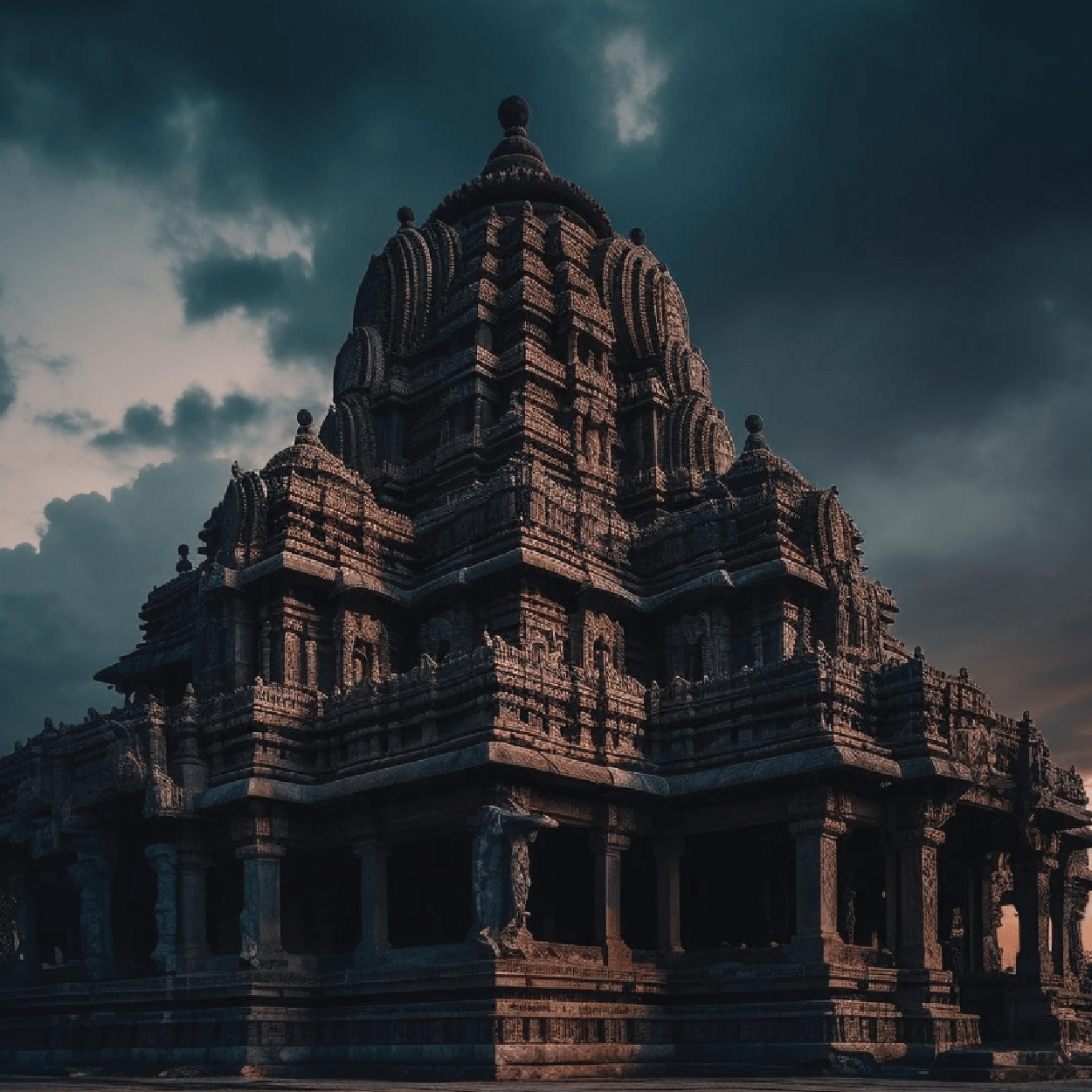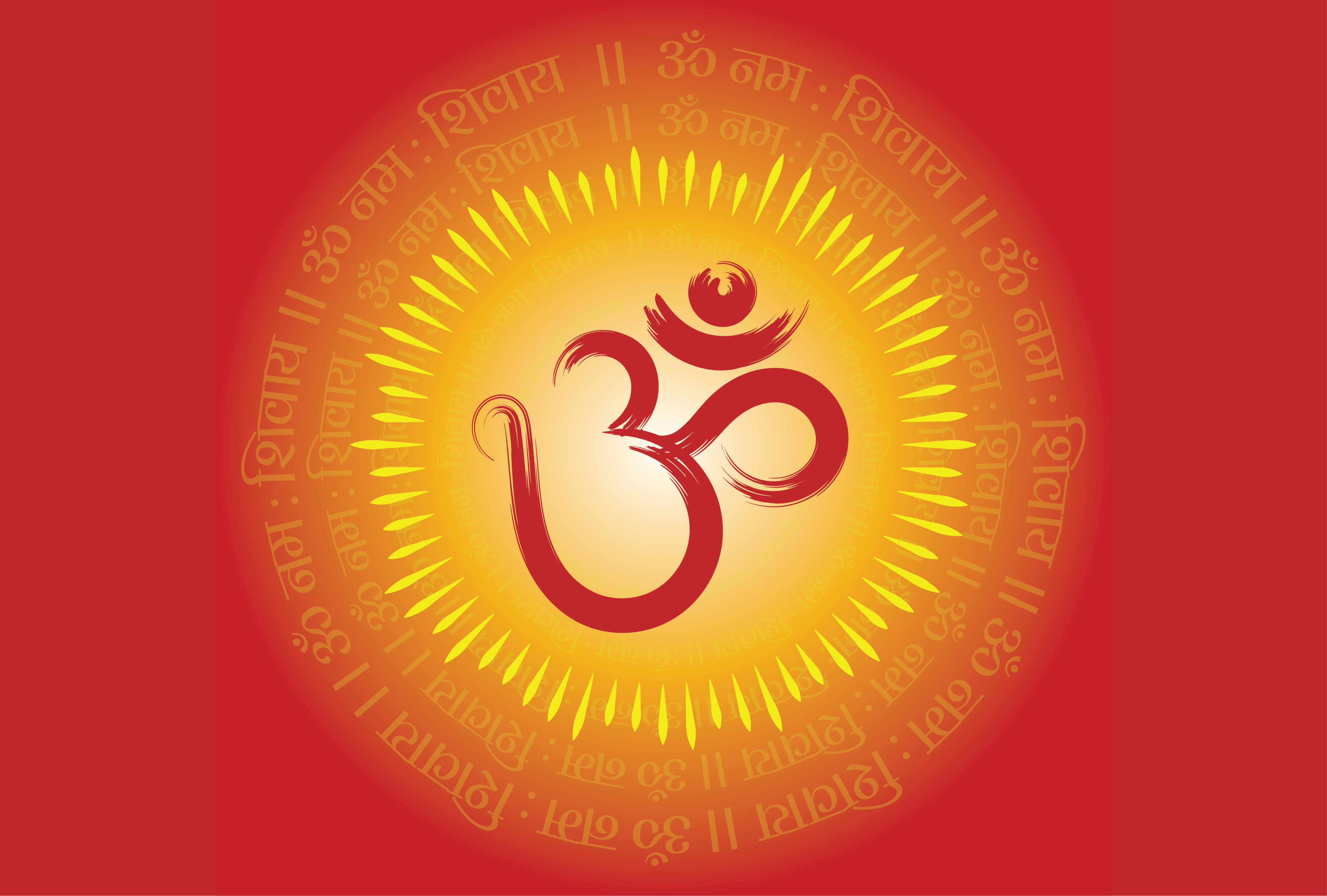
Explore Hindu Heritage: A Journey into Timeless Traditions
Hindu heritage is a vast and timeless tapestry of spirituality, traditions, and cultural wisdom. Rooted in ancient scriptures, it encompasses rituals, philosophies, festivals, and practices that have shaped societies for millennia, fostering harmony, devotion, and a deep connection with the divine.
सर्वे सन्तु निरामयाः ।
सर्वे भद्राणि पश्यन्तु ।
मा कश्चित् दुःख भाग्भवेत् ॥
This saying holds the essence of Hinduism – one of the oldest religions of the world; the believe in goodness and well-being of the world!
Better known as Sanatan Dharma, Hinduism is the way of life – spiritual traditions, rooted in the Vedas and Upanishads. Exploring Hindu heritage can take a lifetime with its in-depth wisdom that includes philosophy, rituals, and practices that transcends barriers of time and geography.

Rich Cultural Practices
Hindu culture is not confined to temples or scriptures; it thrives in everyday moments. A diya flickering in a quiet home, the fragrance of incense at dawn, the joyous chaos of Holi, the deep silence of meditation, these are all pieces of a heritage that connects the divine with the mundane. Rituals, whether it is touching elders’ feet or offering food before eating, aren’t about superstition but about grounding oneself in gratitude and mindfulness. There is meaning to everything!
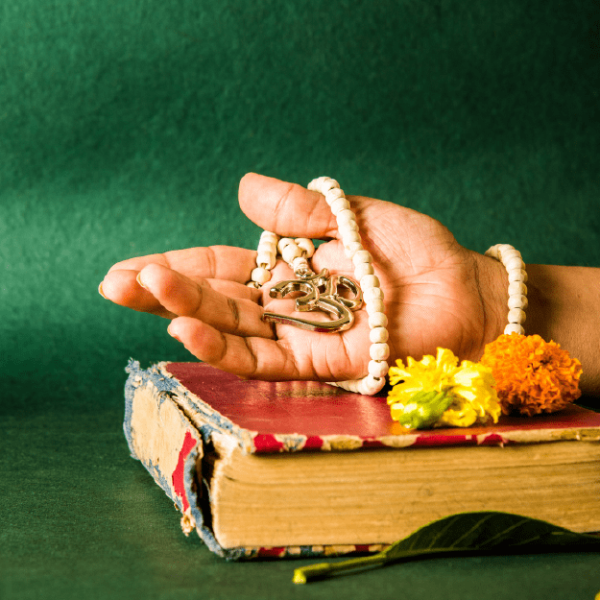 Spiritual Knowledge and Philosophy
Spiritual Knowledge and Philosophy
Hindu philosophy encompasses teachings from the Bhagavad Gita, Vedanta, and Upanishads, offering profound insights into the nature of the self and the universe. Core principles like Dharma (righteousness) and Karma (action and its consequences) guide individuals towards a purposeful and ethical life, making way for spiritual and personal development.
 Yoga and Meditation Techniques
Yoga and Meditation Techniques
There is a path that takes you inwards. This path is yoga and meditation. Yoga combines physical postures, breathing techniques, and meditation to promote holistic well-being. Regular practice enhances physical health, sharpens mental focus, and nurtures spiritual growth, offering tools for a balanced and harmonious life.
 Traditional Healing Practices
Traditional Healing Practices
Ayurveda, an ancient system of medicine, integrates herbs, diet, and lifestyle changes to promote health and longevity. Hinduism also emphasizes the therapeutic power of mantras, where sacred chants create sound vibrations that uplift the mind and body. These practices combine science and spirituality to ensure holistic wellness.
 Deep Connection with Nature
Deep Connection with Nature
Nature holds a sacred place in Hinduism, with rivers, forests, and animals revered as manifestations of the divine. Rituals honour natural elements, promoting ecological harmony and sustainability. Teachings encourage mindful living, emphasizing the interdependence of all life forms and humanity’s responsibility to protect and cherish the environment.
 Community and Spiritual Growth
Community and Spiritual Growth
Ashrams and Gurukuls have been centers of learning and spiritual growth for centuries, offering spaces for introspection and connection. Guru-Shishya Parampara has been the foundation of all learnings. Guided by enlightened gurus, seekers engage in practices like meditation, study, and service. These traditions lead to personal transformation while strengthening the bonds of community and shared purpose.
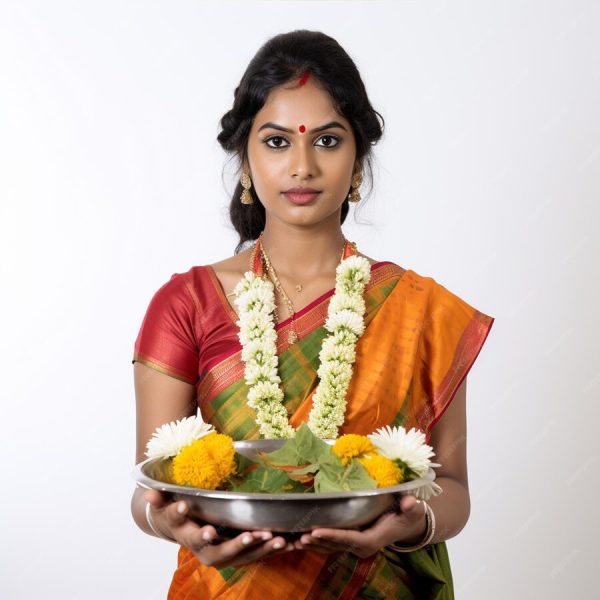 Lifestyle and Values
Lifestyle and Values
Hinduism emphasizes living in harmony through values like Ahimsa (non-violence) and Seva (selfless service). These principles ensure compassion, community welfare, and spiritual progress. By aligning daily actions with Dharma, individuals achieve a balanced lifestyle, finding purpose and joy in contributing positively to the world.
Hindu Heritage: An Ancient Legacy
With origins dating back thousands of years, Hinduism is a vibrant, evolving tradition that profoundly influences philosophy, art, spirituality, and everyday life. More than just a religion, Hindu heritage represents a holistic way of living, deeply intertwined with nature, spirituality, and universal truths.
Embark on a journey into timeless traditions with Hindu heritage, one of the world’s oldest living cultural legacies!
Understanding Hinduism: The Core Principles
Sacred Texts: Pillars of Hindu Knowledge
Hindu Temples: Sacred Spaces of Worship
Architecture of Devotion
Hindu temples are architectural masterpieces symbolizing the cosmos. With intricate carvings, sculptures, and rituals, these temples create sacred spaces for worship, meditation, and spiritual transformation.
Celebrating the Divine through Rituals
Temples host daily rituals, sacred ceremonies, and vibrant festivals that enable devotees to express their devotion, gratitude, and spiritual aspirations, fostering communal harmony and individual growth.
Festivals: Celebrations of Life and Spirituality
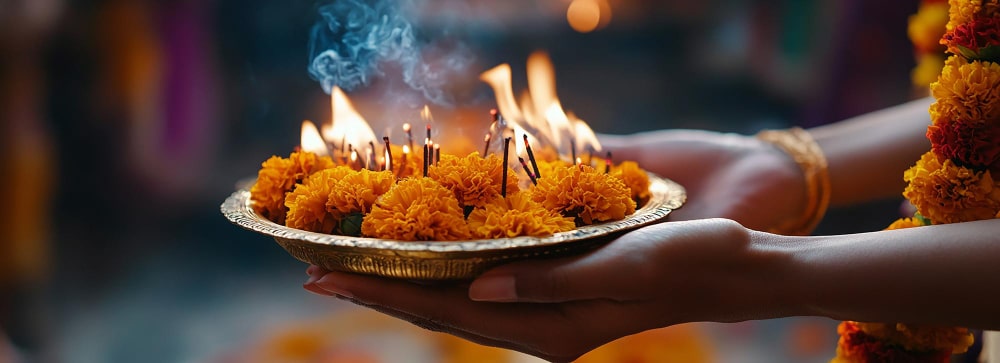
Diwali: Festival of Lights
Diwali illuminates the triumph of good over evil, uniting families and communities with lamps, celebrations, and acts of generosity.
Holi: Festival of Colours
Holi celebrates spring, unity, and joy through vibrant colors, music, and the breaking down of social barriers, symbolizing harmony and renewal.
Navaratri: Nine Nights of Devotion
Navaratri honors the divine feminine through nine nights of prayer, fasting, and dance, highlighting the power, wisdom, and compassion of Goddess Durga.
Ganesh Chaturthi: Celebrating New Beginnings
Ganesh Chaturthi honors Lord Ganesha, the remover of obstacles, celebrated with elaborate rituals, community gatherings, and festive processions.
Raksha Bandhan: Bond of Protection
Raksha Bandhan symbolizes the loving bond between siblings, reinforcing family relationships through rituals of tying protective threads.
Janmashtami: Birth of Lord Krishna
Janmashtami commemorates the birth of Lord Krishna with devotional singing, fasting, storytelling, and vibrant cultural performances.
Makar Sankranti: Harvest Festival
Makar Sankranti marks the transition of the sun into the zodiac sign of Capricorn, celebrated with kite flying, community feasts, and charitable acts.
Yoga and Meditation: Pathways to Inner Peace
Yoga: Union of Mind, Body, and Spirit
Yoga integrates physical postures, breathwork, and meditation, fostering holistic wellness, spiritual insight, and inner harmony.
Meditation: Discovering Inner Stillness
Meditation techniques such as mindfulness and mantra repetition help practitioners achieve inner peace, clarity, and spiritual connection.
Hindu Art and Culture: Expressions of the Divine
Hindu Art: Symbolism and Spirituality
Rich in symbolism, Hindu art narrates divine stories through sculptures, paintings, and architecture, conveying spiritual teachings and cosmic truths.
Classical dance forms like Bharatanatyam, Kathak, and Odissi articulate spiritual devotion and mythological narratives through expressive movement, rhythm, and grace.
Hindu Philosophy: Universal Wisdom
Modern Relevance of Hindu Heritage
Environmental Sustainability
Rooted in reverence for nature, Hindu heritage advocates sustainable living, environmental stewardship, and compassion towards all beings.
Global Influence
Hinduism’s universal teachings on mindfulness, tolerance, and ethical living continue to inspire global communities, fostering intercultural dialogue, peace, and mutual respect.
Through the exploration of Hindu heritage, we invite you to discover timeless wisdom, enrich your personal journey, and embrace a more compassionate, interconnected world.

